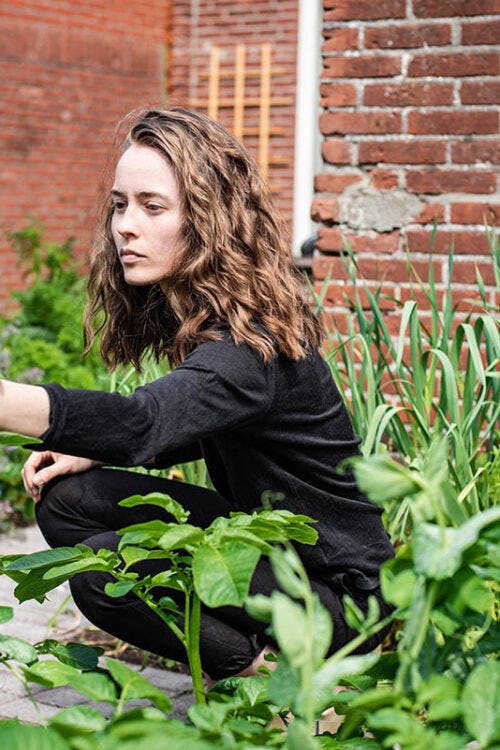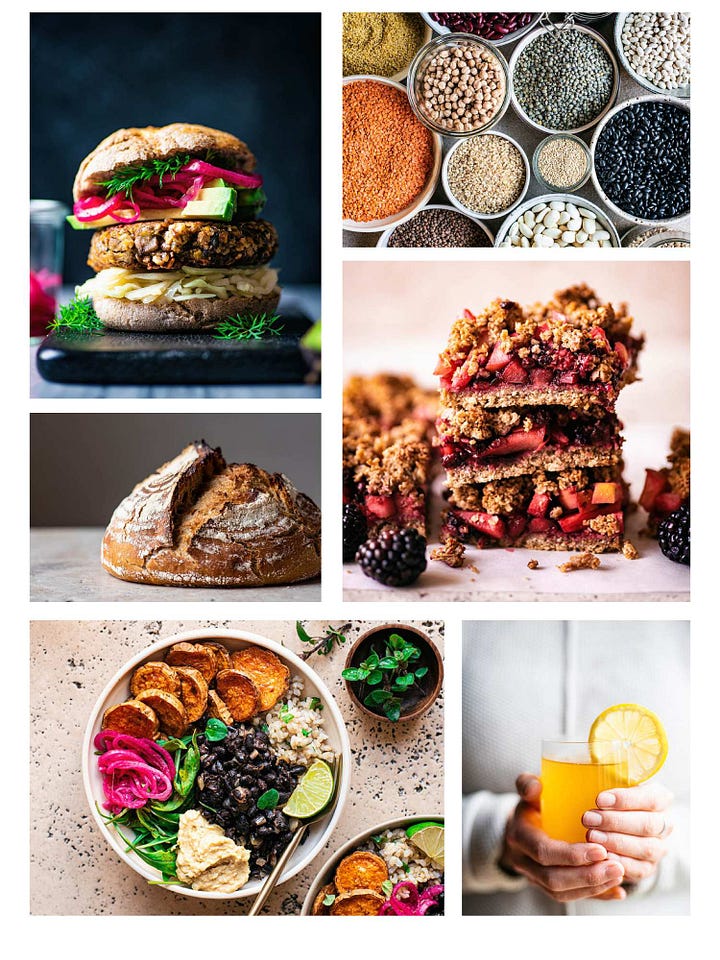

Sweden-based Alexandra is the brainchild behind Occasionally Eggs, a digital kitchen of sorts that features approachable, seasonal vegetarian recipes.
An avid writer, photographer, and connoisseur of recipes, Alex, as she is more commonly known, is Canadian born, raised on a small farm in the province of Manitoba. Her mom, she says, taught her to cook, following traditional German recipes and others she discovered (mostly Italian and Indian food) from other immigrant friends. Guided by her mom’s instructions while assisting as a sous-chef, she received a savory introduction to good food.
In her late teens, Alex says she transitioned to a vegetarian diet and omitted dairy completely when her doctor realized that this was likely contributing to her severe eczema and major depression.
Eating well, she says, as reflected in her carefully crafted recipes, is part of how she managed her lifelong depression and anxiety.
Occasionally Eggs was first launched in 2014, when she was fresh out of university. Her aim is to share feel-food vegetarian recipes featuring local, seasonal, and minimally processed plant based food that is better for us and the earth.
Since launching, Alex has cultivated and shared over 400 recipes that have been carefully tested multiple times in her home kitchen. She is continually updating them with better instructions and clearer pictures so they are easy for culinary enthusiasts to follow.
Because many of the fresh ingredients come from her home garden, they are about as local and seasonal as it gets. She also readily admits to loving a nice balance of chocolate and citrus in her recipe repertoire.
In the spring 2021, she released my first cookbook, Occasionally Eggs, with Appetite, published by Random House. With 110+ vegetarian recipes, arranged by season, plus chapters on basic fermentation and kitchen staples it is a plant-based lifestyle enthusiast’s delight.
Order Alexandra’s book “Occasionally Eggs” HERE from the Great Books, Great Minds bookstore and we’ll earn a small commission from your purchase
A little about you along with a brief introduction to your book “Occasional Eggs.” What was the primary catalyst behind your decision to write it?
Alex: I'm a German Canadian food writer and photographer, currently living in Gothenburg, Sweden. I studied anthropology of food in university and switched over to blogging and food writing in my early 20s because I wanted to be able to reach more people than I would in academia. My book Occasionally Eggs is an extension of that. The goal is to share seasonal recipes for a more environmentally friendly way of eating.
Your book, which is largely plant-based, allows for the occasional use of eggs and honey. Can you share a little about your thoughts here?
Alex: I personally follow a very strict diet that’s based in environmentalism. So that means little to no packaging, no flown-in foods, and as little imported food as possible. Backyard chickens, or what I'm currently getting, KRAV eggs from chickens that must be outdoors and are fed only 100% organic feed but mostly eat vegetable scraps and foraged items, are better for the environment than tofu imported from South America and packaged in plastic, or processed vegan food options also wrapped in plastic.
I also like to support local farmers, as I grew up in a farming community. So I use local organic honey rather than imported maple syrup (which also needs a lot of energy to produce). I do eat a couple eggs a week and yet they aren't a staple food. And in the future, I’ll have my own laying hens and bees. But for now I trust the people that I'm getting these items from directly and don't buy them in the supermarket.
One of the unique parts of your book is a recipe that calls for the use of basic fermentation to make kombucha. What was your thought process here and why you decided to include it in your book?
Alex: There's a whole chapter on fermentation because I think it's a really interesting process and fun for people to do at home. Kombucha is a fermented drink made with tea, a scoby or kombucha mushroom, and some kind of sweetener. It's easy to make right in your kitchen without special equipment and we treat it like soda pop and have a glass every couple of days. You can control the level of sweetness and how bubbly it is yourself, which is cool.
In what ways do you believe your book can spark new conversations about the global plant-based food movement?
Alex: I think that a focus on seasonality and locality is important to plant-based food, as the movement can often be a bit shallow in its thinking about what is positive for health and the environment. Not all vegan food is good for either, and it can't all be painted with the same brush, especially now that large corporations are cashing in more and more on the plant-based movement and using greenwashing for those items (think of the new vegan KitKat bars, are we forgetting gorilla fingers?) We can't do everything but I think there needs to be a deeper consideration for what is good for the environment and for us.
What is your greatest hope in terms of what readers of your book walk away with?
Alex: I hope that it will make people think a bit more flexibly about what an environmentally-friendly diet can look like. The recipes are vegetarian and seasonal, but I think it's really important for people to make decisions that they can continue with in terms of their eating habits, and be happy with, rather than short-term planning. I think it can also be a start for some people along a path to more eco-conscious habits and maybe to choose organic and local foods if they are able to do so.
A Note From Diamond-Michael Scott:
“Great Books, Great Minds” is my full-time work and life passion, a labor of love fueled by the endless hours of work I put into researching and writing these feature pieces. So if you enjoy this digital newsletter, find it valuable, and savor world-class book experiences featuring epic authors and book evangelists, then please consider becoming a paid supporting member at $6.00 a month or $60.00/year.





